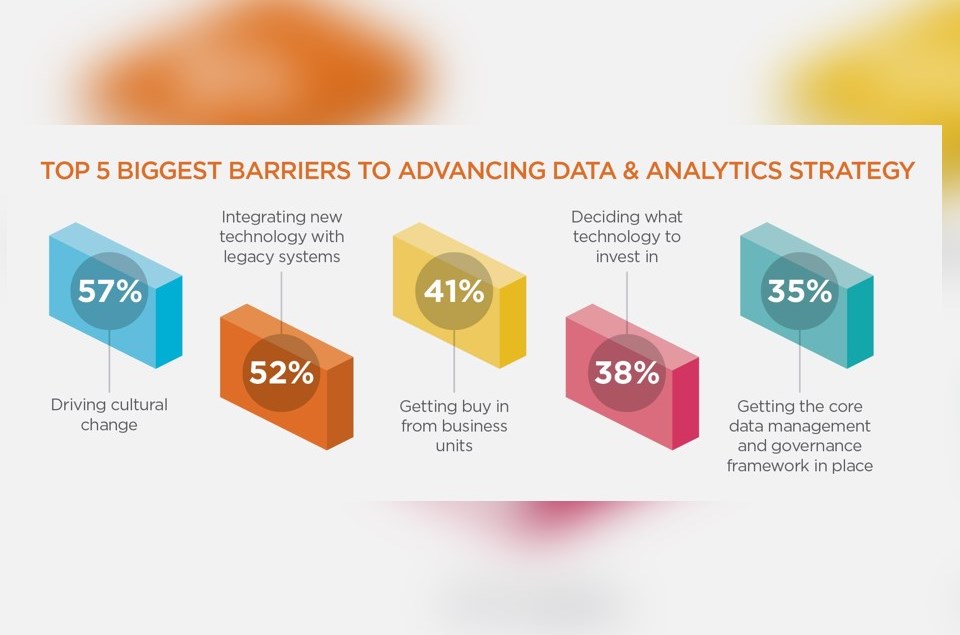Ahead of the coming Chief Data Officer Forum, Financial Services happening on June 22-23, 2016, we spoke to Marc Alvarez, Chief Data Officer at Mizuho Securities USA and one of the distinguished speakers of the event, to share his insights on the key issues gripping CDOs in the financial services industry. We spoke about the challenges faced in this highly regulated environment, the tangible risks involved when one fails to utilize data and the sticky issue of data ‘ownership’.
CDO Forum: In financial services, data is pervasive in everything a business does. How can CDOs establish their remit when every part of the business deals with data?
Marc Alvarez: It’s not really an optional exercise in today’s financial service industry. There is a very strong and to some extent increasing regulatory mandate pushing this requirement – regulators are seeking to better understand and have transparency into the data operations within a firm in order to better measure possible risk. By definition this is a highly quantitative function, in line with other activities such as quarterly reporting of earnings and other performance reports.
Basic statistics tells you that accurate analysis is dependent on the quality and completeness of the data used in the analysis. So the need for improving data quality is a natural extension of the remit from regulators for improved analysis. By the way, this is an evolution that has been ongoing for decades – as technology becomes more sophisticated and economically affordable, more sophisticated statistical and quantitative methods can be brought to bear to better benefit the firm and its clients.
I think this is the key touch point for any organization, whether in the capital markets or not. Removing friction in the ability to access data content to feed empirical analysis is the natural outcome. Looking at the data footprint within a firm and identifying key pain points is the place to start – then moving to establish controls and improve quality of service and the user experience is likely going to generate the visibility to launch a broader program. Metrics around data quality, usage, and, yes, cost, provide the right basis for better managing content, leading to more and better analysis, leading to better satisfying regulatory requirements while at the same better informing both customers and investors as well as staff within the firm.
They key, though, is to recognize and communicate that this is a journey and not a destination. Industry experience has shown that the need for improved quantitative and statistical analysis is insatiable and needs to have an equal effort put into providing reliable and accurate input. It’s not and never will be a one off project.
CDO Forum: Because of data ownership issues, the CDO’s relationship with other senior executives can sometimes be difficult. What do you think is the key to partnering productively with other executives?
Marc Alvarez: I really don’t find the concept of “ownership” particularly meaningful or useful in the data management context. In today’s capital markets, a wide variety of data is used and re-used across the organization – it’s a fundamental resource like air or water in my opinion. We simply can’t run our business without it just like a blast furnace can’t run without oxygen or a sailboat without wind (or water for that matter).
That means we have a situation where we have multiple uses for the same resource. The real value to the firm is to deploy infrastructure that makes accessing and consuming the resource as efficient as possible. In today’s day and age that means establishing some form of level of service to meet these requirements at enterprise scale. In the past, this could be handled by the IT team on a project by project basis, but the demands are rapidly exceeding the capability and it’s likely not sustainable.
I really don’t find the concept of “ownership” particularly meaningful or useful in the data management context. In today’s capital markets, a wide variety of data is used and re-used across the organization – it’s a fundamental resource like air or water in my opinion.
I think the key is to get dialogue going at a senior level within the firm and undertake an honest assessment of the firm’s capabilities to meet the growing demand. More IT spend is likely part of the answer, but it’s also becoming increasingly clear that firms need to build new competencies in the areas of data acquisition, management, administration, accounting and so on if they are going to not only compete, but thrive in an increasingly globalized and digitized economy.
Senior executives are well versed in working with data since they have to report results on a regular basis. So it’s not a foreign topic for them (at least it shouldn’t be). They get the potential upside to be won from thinking of new ways to deal with data supply at scale within the firm….once you cross that particular threshold, it really becomes a question of setting priorities and execution, both areas where financial firms in particular excel.
CDO Forum: Is it fair to say that the heavy regulatory burden that finance companies face means they have been slower to find the value in their data than those in other industries? How do you think can this be overcome?
Marc Alvarez: I would disagree that financial firms have been to slow to come to value their data. If anything, financial firms have been at the forefront of consuming and managing data content for decades. Data content – whether its prices, corporate actions, news, symbology, reference data, or whatever is a fundamental input to a financial firm’s business operations….plus the universe of content the firm generates itself. If anything, I think financial firms are at the front of the curve in deploying data content to everyday business operations. Just look at the amount of investment Silicon Valley is making in funding firms that sell to financial services!
And while regulatory reform is proving to be a major overhead to the business (we can debate just how effective it’s proving), I think it’s clear that financial firms are very well equipped to meet these challenges. The difference is that the impetus is coming from regulation and the scale of reporting and analysis is unlike anything we’ve seen before.
However, I’m fairly optimistic on this point – uniquely the financial industry has the history of working with data content and technology to have the skills to meet these demands. And if the new regulatory framework does what it claims it’s supposed to do, we’ll be living in a world of reduced risk and volatility for investors to deal with. That has to be good thing.
CDO Forum: What do you think are the risks for a financial services institution that fails to utilize its data in a meaningful way?
Marc Alvarez: Well, the obvious one is the risk of being fined and the associated impact on the firm’s reputation.
More importantly are the opportunity costs. Optimizing the manner in which the firm acquires, integrates and applies data content is fundamental to providing customers with an agile service line. The faster we can develop and leverage analytics, the better we can serve our customers across all our lines of business. Technology is core to today’s business and in particular it is driving more robust and sophisticated statistical analysis. I think we’ve arrived at what the journalists like to call an “inflection point” – the combination of technology and available data content are equipping firms and investors alike to perform far more detailed statistical analysis, developing entirely new investment strategies while at the same time modelling and managing the corresponding risk.
I think it’s becoming clear that this is the new normal – business is demanding new and more sophisticated analytics – it’s not an option. Failing to improve in data management will be a major constraint on a firm’s ability to compete and grow.
It will be interesting to see how the new entrants in the FinTech space address data management – if there are any new ways to skin this particular cat, that’s one place to look for them. If they break trail and come up with new, more efficient methods that avoid the challenges facing longer established firms (including the regulation hurdle), then we should see still more competition in an already hyper-competitive industry.
I think it’s becoming clear that this is the new normal – business is demanding new and more sophisticated analytics – it’s not an option.
CDO Forum: With the current scarcity of talent and high demand for data professionals, can CDOs still build an effective team?
Marc Alvarez: So this is where the “C” comes into “CDO” – building teams, recruiting staff, improving competences…these are all tasks that come with any leadership position. I don’t think there’s anything special when it comes to data management, however finding and growing leaders in any discipline is hard to do; that is true.
The common lament you hear is that data professionals can be somewhat hard to find these days. However, I think we may need to start by broadening our search parameters. The data vendor community has addressed many of these challenges over the years (full disclosure, I recently left a data vendor firm) and we are seeing an increase in education in the area. So I suspect we will have to address the current skills shortage via a variety of recruiting and training methods – in fact, I expect defining these programs and attracting the right talent will form a big part of the CDO role.
The real challenge will be retaining the staff you get up to speed – people in data management roles tend to be highly numerate, analytical and excellent communicators…..there are plenty of roles in today’s economy that place a premium on those skills. So turnover is, unfortunately, to be expected. On the plus side, if you’re just starting your career, data management is great place to consider – it opens lots of doors and the work really is quite interesting.
CDO Forum: What do you think is the key to turning a team to be ‘data evangelists’ and how do you engage employees across the business to manage and utilize data?
Marc Alvarez: As with real estate, only 3 things – communicate, communicate, communicate!!
The challenge I find is that everybody in the industry presumes they know what we’re talking about when we use the phrases “data management” or “data governance” or “data” whatever. However, the reality is that if you ask 5 different people for their definitions you are almost certainly are going to get 20 different answers!! Putting my old Product Manager’s hat on, this indicates to me a need to set the scope of the discussion and agree on the terms of engagement. That means one aspect of the CDO role is to lead some internal marketing efforts to get the firm up to a common and agreed level of understanding.
There are a lot of ways to do this – other aspects of our business like IT Security expend a lot of effort in communicating complex concepts and requirements. So I think that’s the model to work with – creating an expectation that any one “evangelist” is going to be effective just doesn’t sound right to me. I think setting goals and producing visible results goes a lot further than anything else. Do that, then the marketing comes easily.
CDO Forum: What do you think is the single most important quality that CDOs must possess to succeed in Financial Services companies?
Marc Alvarez: Be fearless! You need to be comfortable going across a lot of functions including IT, regulation, risk management, finance and so on. There is no one playbook to follow for any given firm and I think you have to be comfortable with a fair amount of uncertainty. So you have to have a strong will and communicate a very complex set of tasks, goals, and most important of all, benefits to the business. I think that adds up to having the courage to take on some pretty big issues and enlist the resources of the firm – so it’s not a job for you if you like things nice and quiet!
Hear more from the leading voices in Financial Services at the coming Chief Data Officer Forum, Financial Services on 22-23 June 2016 in New York City. Join over 100 CDOs, CAOs, and other data leaders from leading global and national financial institutions. For more information, visit www.chiefdataofficerfinancial.com










